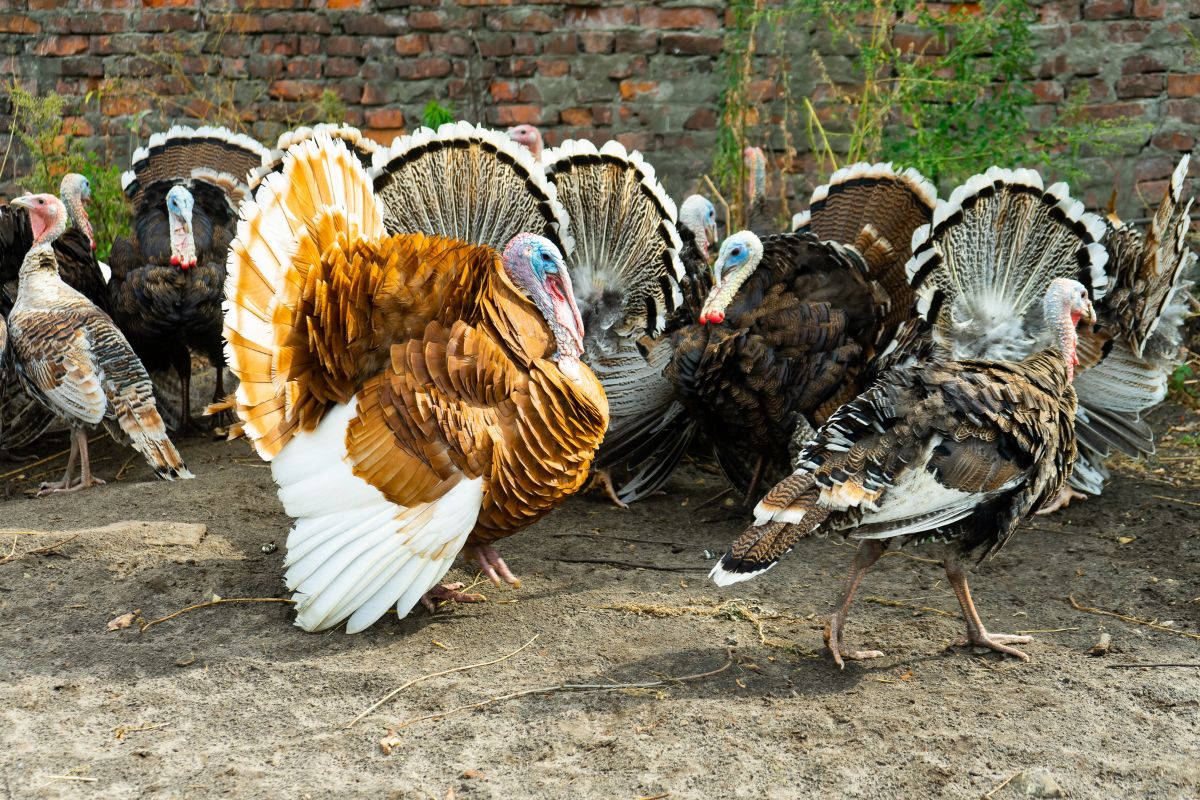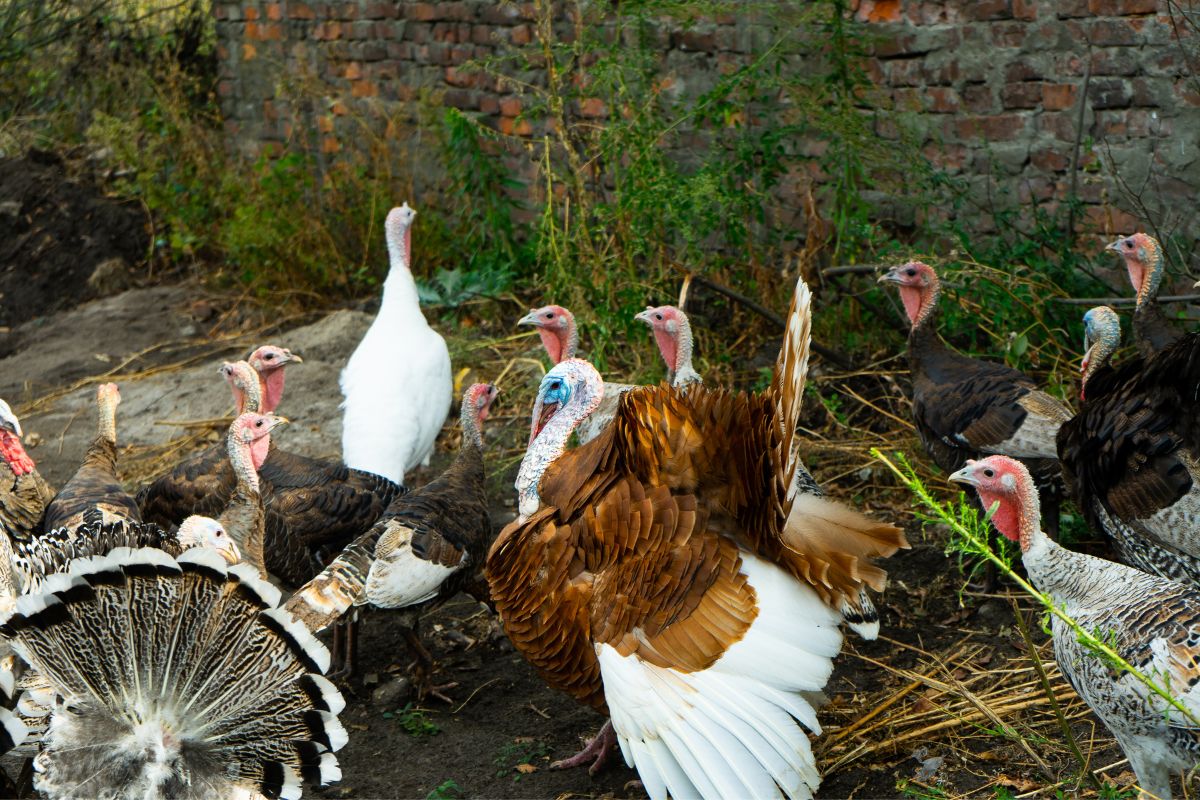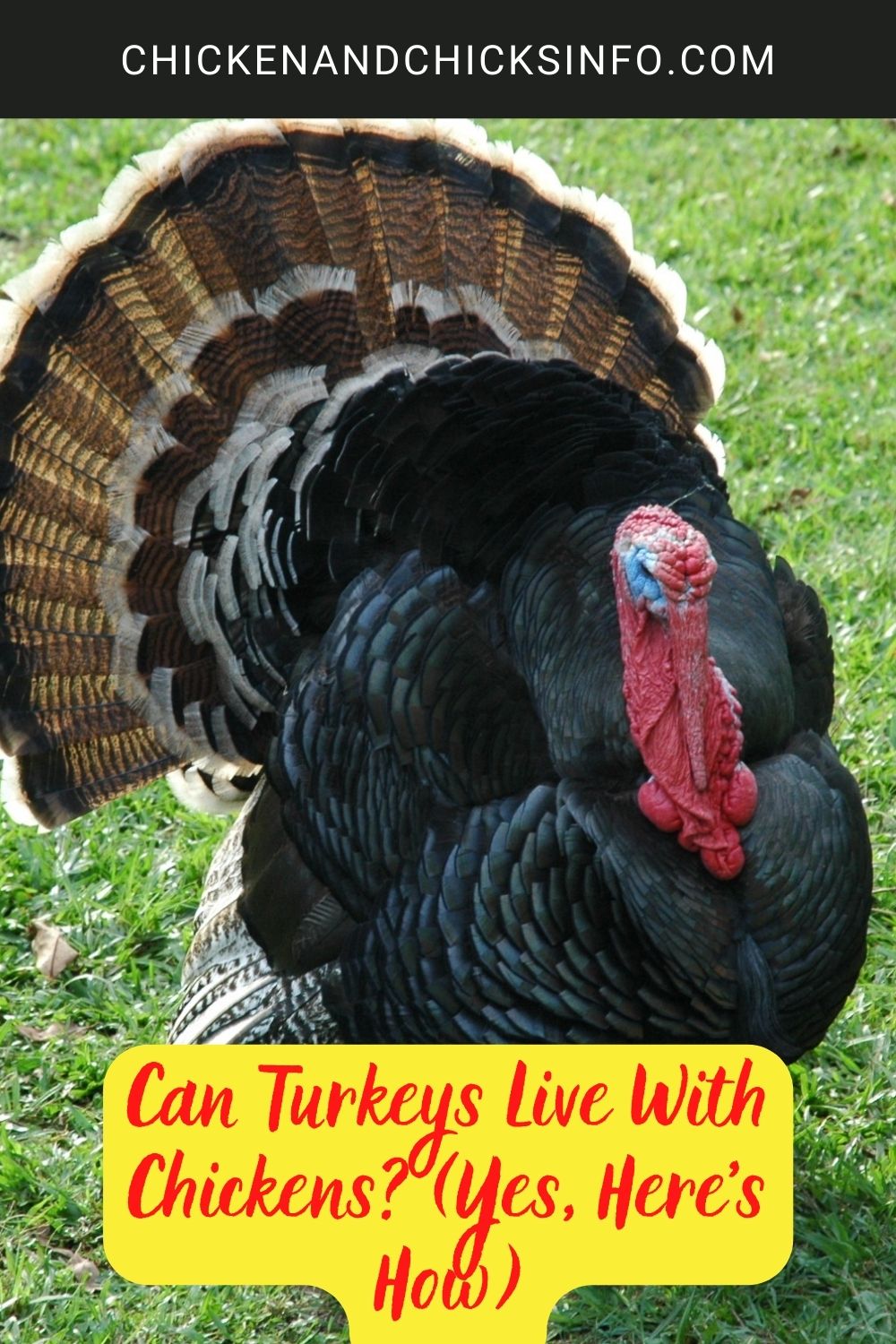
Yes, turkeys can live with chickens in perfect harmony when integrated correctly. Generally speaking, chickens are happy to live with a lot of different animals and species of birds and it's fun and rewarding to do so.
Jump to:
What You Need to Know About Raising Turkeys and Chickens Together
Chickens are very adaptable and will happily live with all kinds of other species of birds and other animals.
You do have to be careful though. Chickens form a pecking order within their hierarchy, and roosters can be notoriously protective and defensive.
However, as long as you take the necessary steps to make sure both species have all of their needs met, you introduce them correctly, and spot any potential issues early - I’m sure you’ll be able to create a harmonious environment.
Brooding Poults and Chicks
I’ve spoken with a few people who have raised poults and chicks together in the same brooder without any issues.
Personally, I’d raise poults and chicks in separate brooders if you have space and means to do so. Especially for the first few weeks.
The reasons for this are that; turkey poults are more fragile than chicks, and they need to be fed a different starter feed.
Baby chicks need to be fed a feed with around 20% protein from a day old all the way up to 6 weeks or so. While turkey poults require a 28% protein feed for their first 6-8 weeks.
Mature Chickens and Turkeys

Adult chickens and turkeys can be fed the same feed. Feed containing 16% protein is fine for hens and turkeys. Although, if you’re raising turkeys for meat you’ll probably need a higher protein feed.
As for getting along, problems should be few and far between. Especially if they’ve been introduced to each other from a young age.
Turkeys tend to hang out with other turkeys as they are slower than chickens, and it’s only really an overzealous rooster that usually causes a problem.
They should share a coop just fine too. Turkeys like to have lower nesting boxes on the floor, while your chickens will take the top bunk nesting boxes and roosting bars.
As long as you’re ready to separate any birds at the first signs of any issues, you should have a mixed flock that coexists just fine.
In my experience, turkey hens and chicken hens don’t become the best of friends or anything like that. They tend to ignore each other for the most part, but nothing wrong with that.
Related - Can chickens live with Muscovy ducks?
Be Aware of Blackhead Disease
If you’re not as familiar with turkeys as you are chickens, you need to be aware of blackhead disease.
Blackhead disease is a poultry disease that is spread by roundworm and can be passed between chickens and turkeys.
Chickens typically do not show any symptoms and can live a normal life. Turkeys on the other hand have little to no immunity to it and the mortality rate can be as high as 80%-100% in some flocks with an outbreak.
For this reason, it’s important to do as much due diligence as you can when buying poultry and keeping them in a flock with turkeys.
Ask about blackhead from the breeder you’re purchasing poultry from. It’s also a good idea to try and find out if there have been any cases in either your area or that of your breeder.
Can Turkeys and Chickens Eat the Same Food

Baby turkeys (poults) and baby chicks should be fed their own individual starter feeds specially formulated for each species.
Poults require a higher protein feed, especially for the first few weeks. I have read that some people keep poults and chicks in the same brooder with the same high-protein feed without any problems, so you can try that.
As they mature into adults they can both eat a quality feed with 16% protein. Meaning they can eat the same food, yes.
Can Turkeys and Chickens Mate?
Chickens and turkeys are two different species and shouldn’t be cross-bred. According to Wikipedia, there have been some attempts to cross domestic turkeys and chickens before, but very few hybrids successfully hatched.
This doesn’t mean a male turkey (a stag) or a rooster will not attempt to mate with females of the other species. In fact, there is a good chance they will!
Turkeys are a lot bigger than chickens so this can result in injury for hens. It’s something you need to keep an eye on and manage accordingly.
So, in case you were wondering, there are no “Turkens” or “Chickeys”. Although those are pretty cool names.
In Summary
Keeping backyard chickens is fun and rewarding. The only way to make it more fun is by adding more birds to the flock!
If you’re thinking about raising turkeys too, go for it. As long as you’re well-prepared and know what you’re getting into, they’ll all get along just fine.
Oh, and you’ll get a few more delicious eggs too. But you can only expect about 1-2 eggs per week!
Related - Here are some tips for introducing dogs and chickens.
Resources
Blackhead Disease in Poultry - fda.gov





